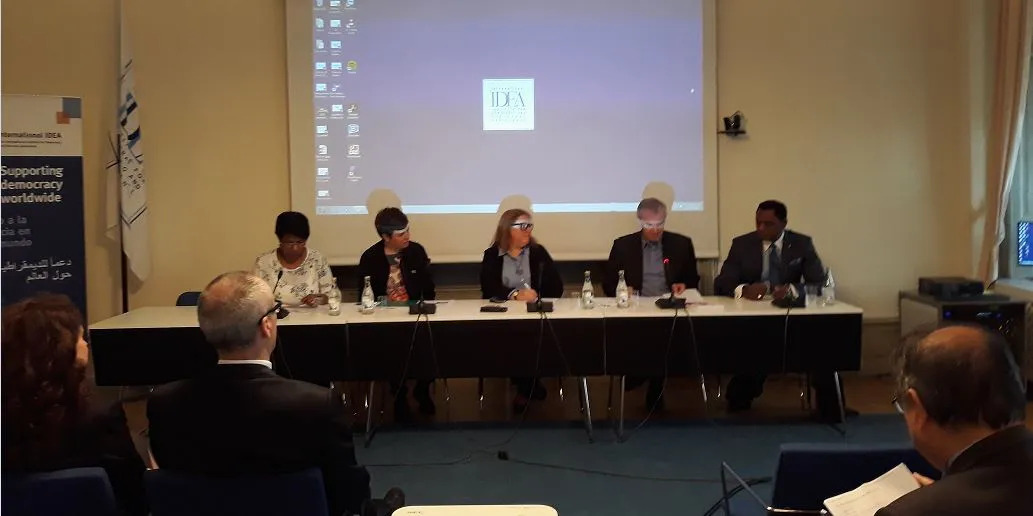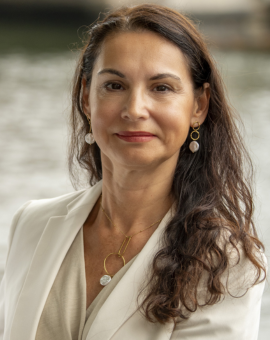International IDEA hosts panel discussion on Democracy, Poverty and Peace

On Monday 2 October 2017, International IDEA hosted a panel discussion on 'Democracy, Poverty and Peace' at International IDEA´s headquarters in Stockholm.
The panel was organized by ATD Fourth World, an international NGO that works on poverty eradication through changing society´s views of people living in poverty, and through the empowerment of marginalized groups.
The purpose of the panel was to discuss how people in poverty, whose voices and hardships are often ignored, can be included in, and contribute to, the democratic process. The panel consisted of Yves Leterme, International IDEA’s Secretary-General; Diana Skelton, Head of Mission of ATD Fourth World; Jacques Mwepu, Prison Governor of the Swedish Prison and Probation Service; and Anna Johansson, the Head of Social Services at Stockholm’s Stadsmission. The panel was moderated by Ronia Virginia, Co-Founder of Synergy Partner.
Opening the panel, Secretary-General Leterme expressed his commitment to hosting the discussion, the topic of which is very relevant to the work of International IDEA. Both ATD Fourth World and International IDEA work towards inclusion in the democratic process, and in overcoming the obstacles to exclusion, of which poverty is one. Given this, Leterme noted that the two should join forces in building sustainable and inclusive democracies, and together contribute to equality among citizens, in pursuit of United Nations Sustainable Development Goal 16, Peace Justice and Strong Institutions.
Building on Leterme’s introductory remarks, Skelton drew attention to the work that her organization, ATD Fourth World, has carried out in the Central African Republic (CAR). With ATD´s help, people living in poverty in the CAR have set up various ways of supporting each other, contributing to sustainable peace in a country that has been marred by violent conflict. Mwepu added to this, drawing on his personal experience of the importance of community engagement and solidarity among poor people in the CAR for building sustainable peace.
The discussion then leapt to Western Europe, where, stated Skelton, people in poverty are often stigmatized as a result of their perceived ´failure´ to ‘make it’ in a prosperous society, and where scapegoating and hatemongering are becoming more prevalent in the context of the recent terrorist attacks. She noted ATD´s People´s University, where people from various social backgrounds can come together to meet and discuss, as one example of a project designed to better include people in poverty in society, and to build a sense of community.
Johansson, from Stockholm´s Stadsmission, closed the panel by relating the discussion to the Swedish case. In Sweden, the government claims absolute poverty does not exist. Yet, she noted, Sweden does host a large number of undocumented migrants that live in poverty, are marginalized and who do not receive state support. She concluded that in Sweden, too, there remains a battle to be fought in having poverty recognized as a policy issue, and having poor people´s voices heard in the democratic debate.




